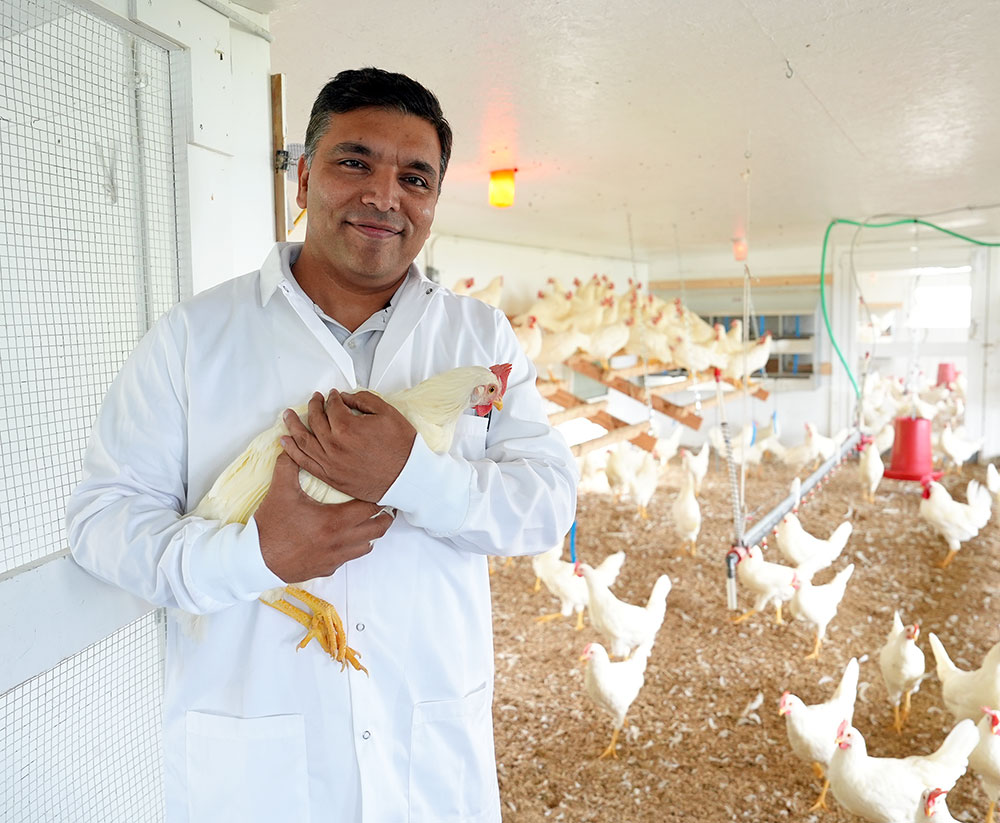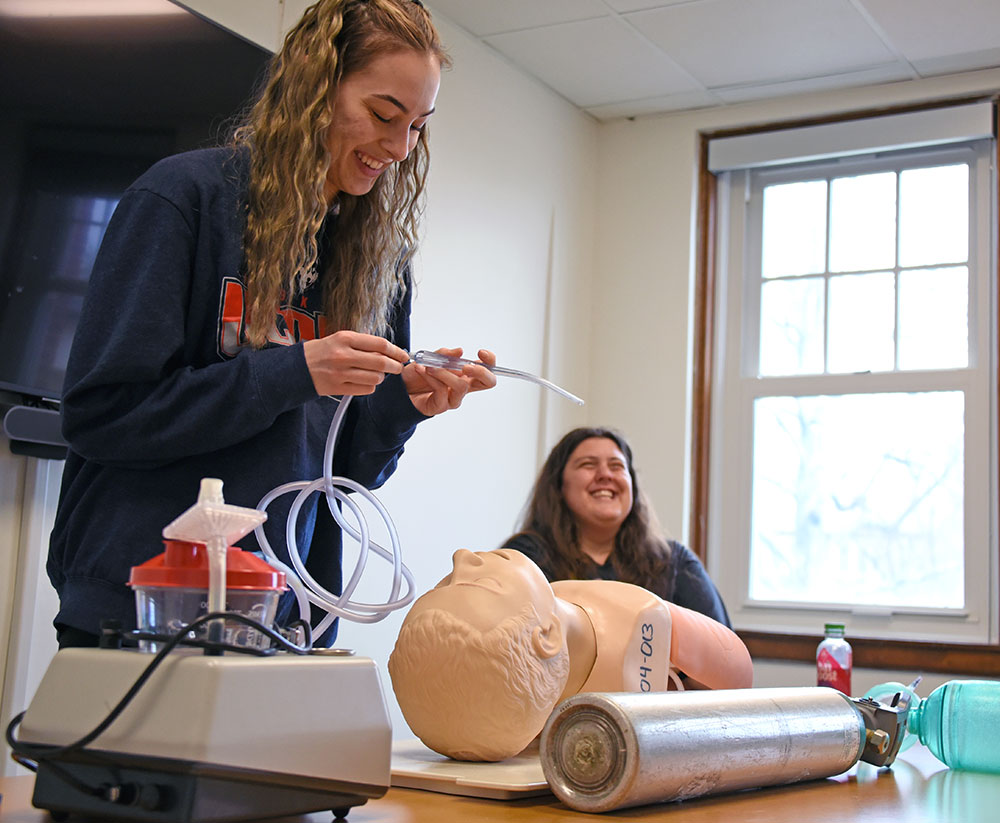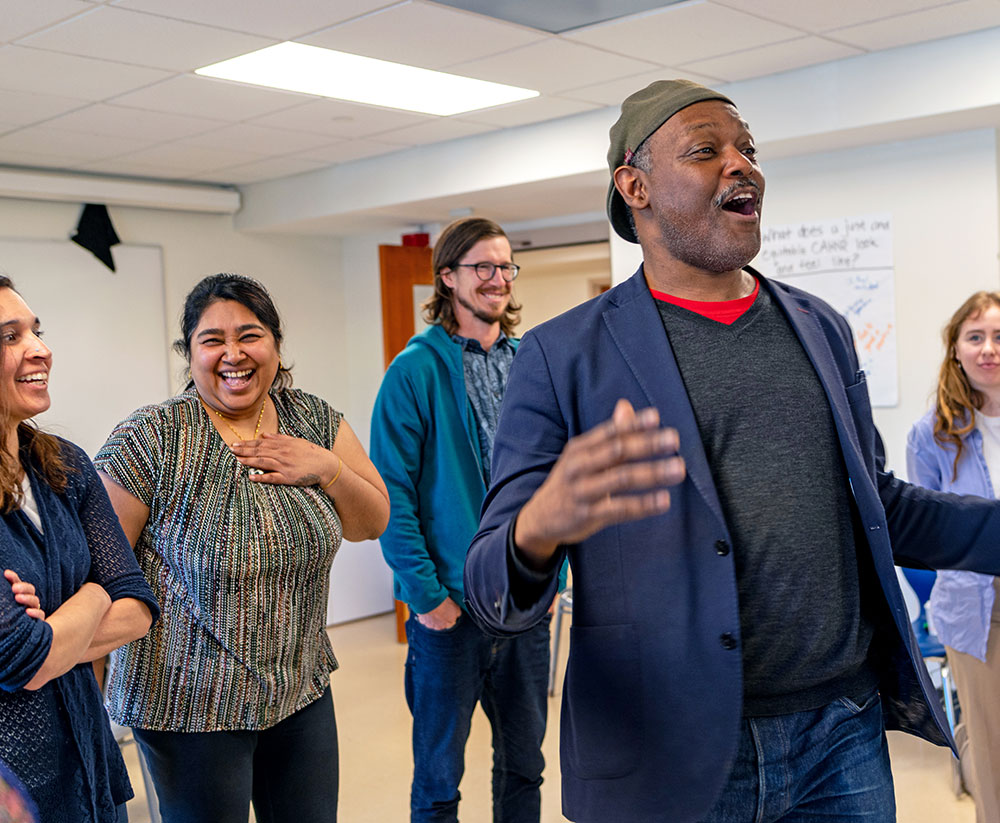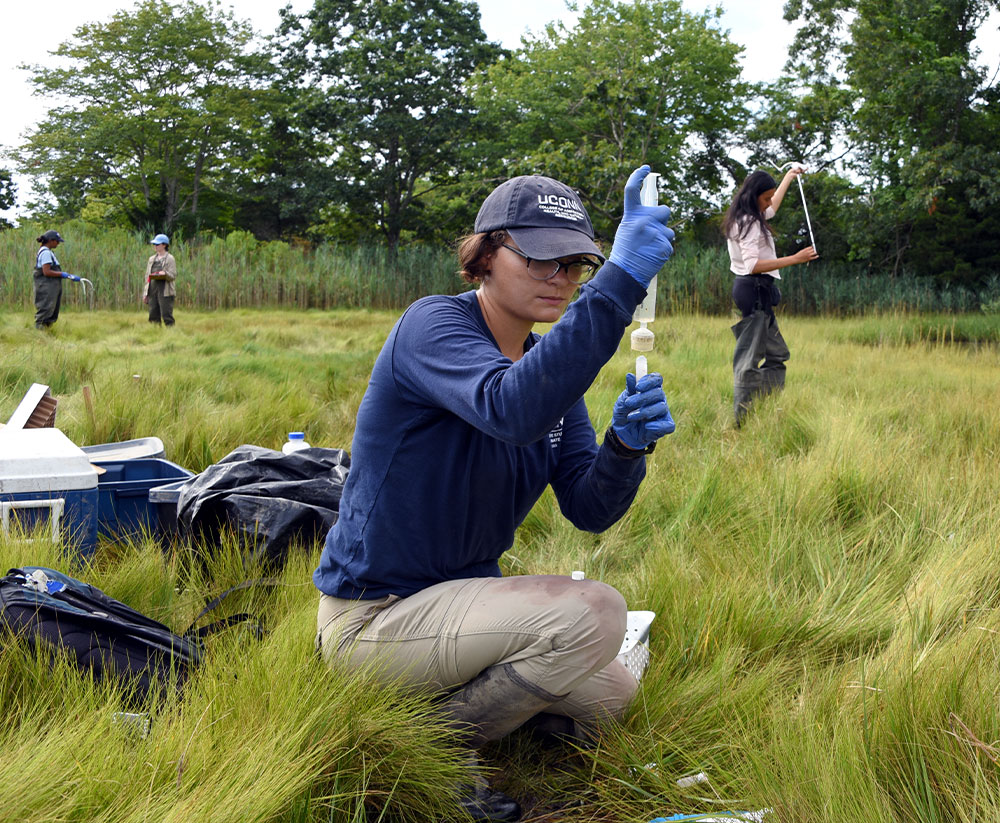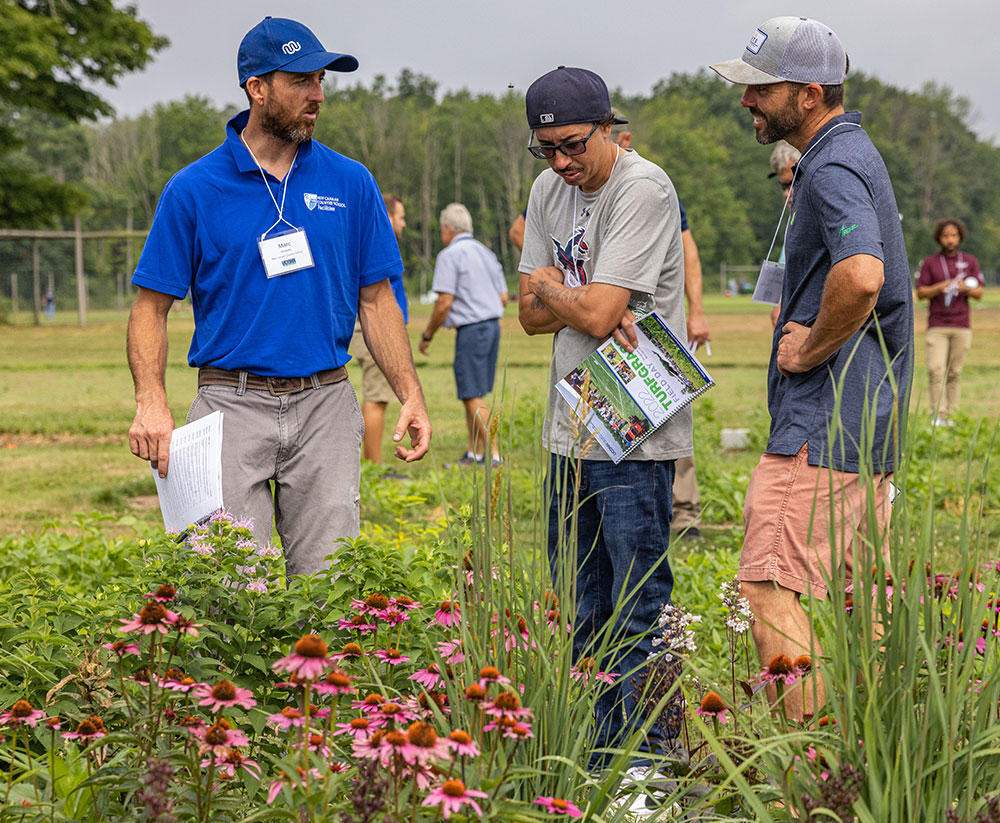
Strategic Vision
2020–2024 Progress Report
Vision and Values
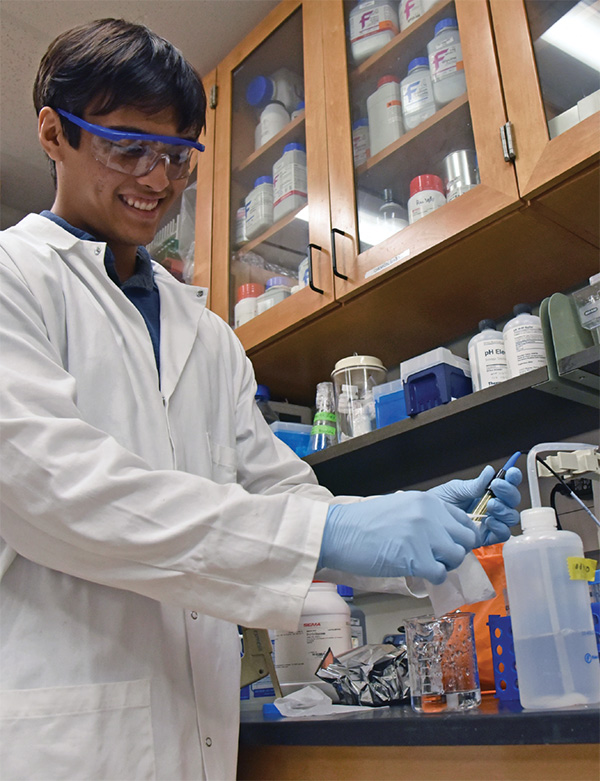
The College of Agriculture, Health and Natural Resources (CAHNR) launched a strategic visioning process in 2019, culminating in a Strategic Vision for 2020-2025 and Strategic Vision Implementation Committees (SVICs) to lead and support work in five key areas. This report summarizes and highlights completed work, impacts, and next steps.
Our Vision
CAHNR leads communities and stakeholders toward a sustainable future through scientific discovery, education, and community engagement. Our leadership and innovation advance safe, sustainable, and secure plant and animal production systems; healthier individuals and communities; greater protection and conservation of our environment and natural resources; balanced growth of the economy; and resilient local and global communities.
Visioning Process
CAHNR has a robust legacy and global visibility as a land-grant institution excelling in teaching, research, and extension. Our Strategic Vision is the result of collaboration and innovation among faculty and staff to identify challenges faced by our communities and ways to lead in areas of strength for our College. The trends, expertise, areas for improvement, operational goals, and our core values inform decisions and ensure we continue improving quality of life for a sustainable future.
Vision Statement for a Diverse, Equitable, Inclusive, and Just College of Agriculture, Health and Natural Resources
By the Numbers
$148
million in external grant funds
200+
faculty and staff across all
departments participate in SVIC committees
32%
increase in graduate students
3,800
Extension certifications
10%
increase in
undergraduate students
20
patents
2,300
clients annually with
the Connecticut Veterinary
Medical Diagnostic Laboratory
720
Extension fact sheets
and publications
Focus Areas
Discussion and Next Steps
Co-chairs from across CAHNR departments lead Strategic Vision Implementation Committees (SVICs) to provide direction within and across the five core strategic vision areas. These are:
- Ensuring a vibrant and sustainable agricultural industry and food supply
- Enhancing health and well-being locally, nationally, and globally
- Promoting diversity, equity, inclusion, and justice
- Advancing adaptation and resilience in a changing climate
- Fostering sustainable landscapes at the urban-rural interface
College-wide, faculty and staff align their mission-driven teaching, research, extension, and service to one or more strategic vision areas, contributing significant amounts of energy and outputs. Growth in student enrollment, external research awards, and extension engagement all indicate CAHNR’s impact. This alignment and SVIC-led efforts created new interdisciplinary projects; workforce development through undergraduate, graduate, and extension education; and improved outcomes regionally, nationally, and internationally.
One example of the improved outcomes through SVIC-aligned initiatives is the three conferences CAHNR recently led, where the College engaged university and external partners. First, a two-day Cannabis Symposium in March 2023 explored research, health benefits, entrepreneurship, law, science, and recreation. An October 2023 symposium connected researchers and fostered collaboration for a sustainable environmental future. The inaugural One Health Conference, held in April 2024, encouraged discussion and collaboration in the pioneering transdisciplinary approach to research and problem-solving on major global challenges aligned with the United Nations Sustainable Development Goals.
CAHNR continues to invest in SVIC success, through various initiatives, including internal funding to 24 projects across strategic vision areas. These ongoing efforts also highlight the interconnectedness of research, education, and extension initiatives across two or more SVIC areas.
